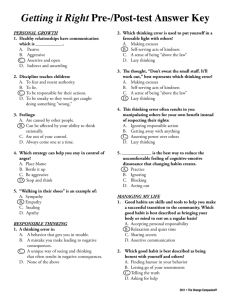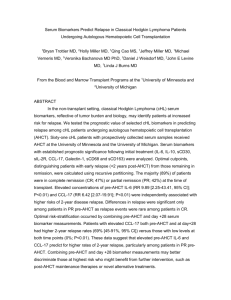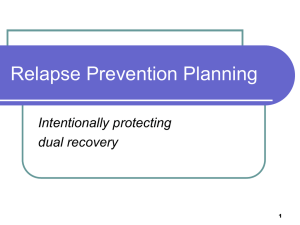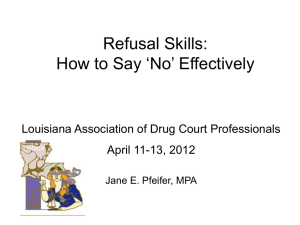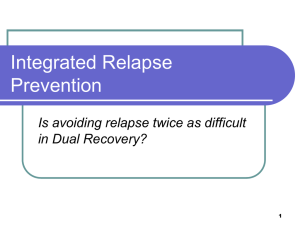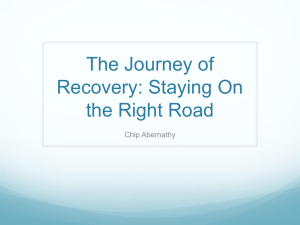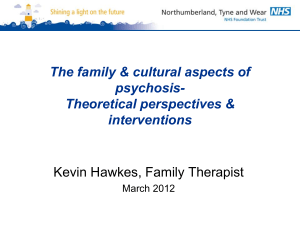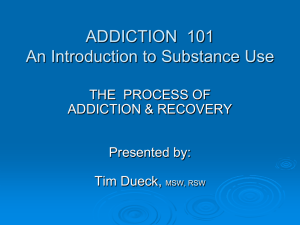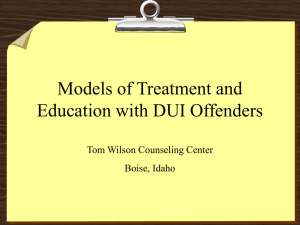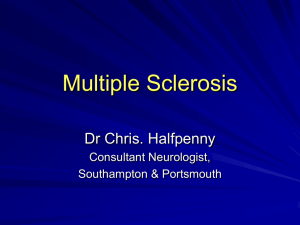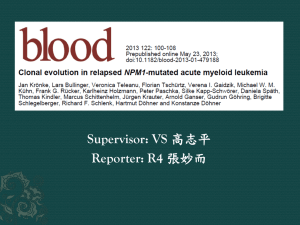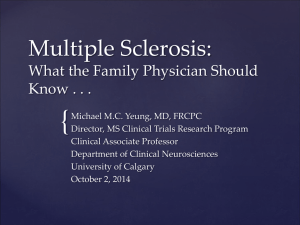If you identify something as a warning sign, treat it
advertisement
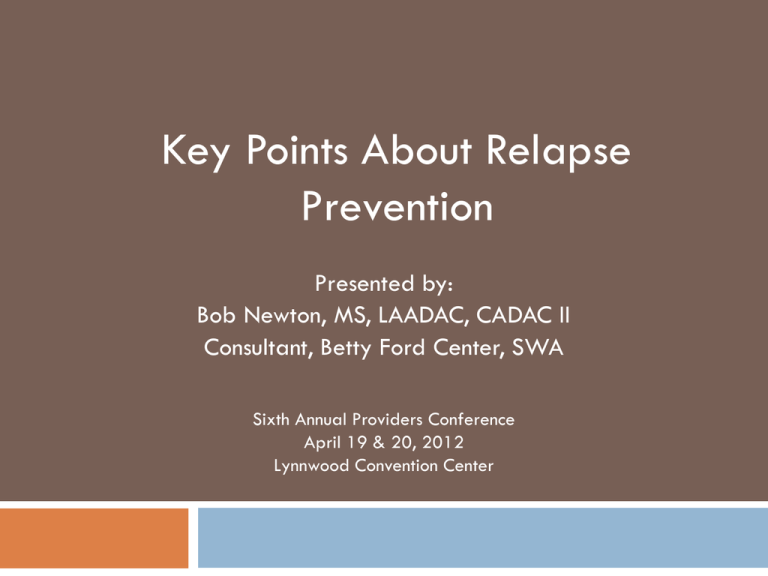
Key Points About Relapse Prevention Presented by: Bob Newton, MS, LAADAC, CADAC II Consultant, Betty Ford Center, SWA Sixth Annual Providers Conference April 19 & 20, 2012 Lynnwood Convention Center Copyright © L. Days, 1996 Facts About Relapse You cannot relapse if you are not in recovery. You usually relapse first on something other than your drug of choice. The higher your IQ the higher your addict IQ. Relapse doesn’t mean you failed—it means your recovery needs a tune-up. The saying “relapse is part of recovery” doesn’t mean you get to use. Relapse is a process not an event. There is no such thing as a “slip”. Defining Recovery Recovery is a verb not a noun. Recovery is a process not an event. Most people who try to get clean fail. Recovery is difficult. Recovery is bio-psycho-social and spiritual. Recovery is “taking good care of yourself”. Recovery is… “…the will to extend oneself for the purpose of nurturing one’s own or another’s spiritual growth.” - M. Scott Peck, The Road Less Traveled Developmental Model of Addiction Experimentation: Situational misuse: Problem use: Dependence: Social use. I can take it or leave it. I have no problems. Drugs and alcohol make me a better man in certain situations. I use to cope with everyday life issues, and I am having problems. I continue to use despite knowing the negative consequences, loss of control, blackouts, tolerance and withdrawal, lots of problems. Developmental Model of Recovery Transitional: Stabilization: I have a problem, but I can control it. I can’t control drugs/alcohol, and I need to learn how to not use. Early Recovery: Change playmates, playgrounds, and playthings. Middle Recovery: Balance. Late Recovery: Deal with unresolved childhood issues. Maintenance: Continue to nurture bio-psycho-social and spiritual growth. Bio-Psycho-Social-Spiritual-Cultural Biological Get proper amount of rest Eat a healthy diet Regular doctor visits Follow doctor’s instructions Regular dentist visits Follow dentist’s instructions Identify and manage stress Avoid nicotine Avoid excessive caffeine Avoid drugs and alcohol Bio-Psycho-Social-Spiritual-Cultural Psychological See a therapist Follow therapist’s advice Identify and manage feelings Identify and manage stress Identify core issues Intellectual challenge Avoid negativity Develop a sense of purpose and meaning Recognize cognitive distortions Nurture self-esteem Bio-Psycho-Social-Spiritual-Cultural Social Positive friends Healthy relationships Working with sponsor Having fun in recovery Sober support system Able to love and trust others Able to be lovable and trustworthy Healthy family relationships Giving something back to society Relationship with self Bio-Psycho-Social-Spiritual-Cultural Spiritual Prayer Meditation Reading spiritual literature Fellowship with spiritual people Attending spiritual services Morals and values Honesty in all your affairs Practice humility Communing with nature Donating time and money Relapse Prevention Therapy Assessment (self and client) Early intervention plan Warning sign identification Warning sign management Revised recovery plan Early Intervention Planning What will it look like when you start to bail out of the treatment process? What can I do to reel you back in? Who should I call? Do you have any high risk situations coming up in the next six weeks? Write letters from your sober self to… The Relapse Process Relapse is a process not an event. relapse warning signs Sentence Completion Exercise I know my recovery is in trouble when I... 1 2 3 4 5 6 7 8 9 10 Critical Warning Signs Pick the three most dangerous warning signs from your list. Are you doing any of these right now in your life? If you identify something as a warning sign, treat it accordingly. If you know a dog bites, treat him like he bites! The Revised Recovery Plan If your Recovery Plan isn’t addressing your issues, it is just “busy work”. Make a list of 10 concrete, specific, and measurable activities that you do every week that constitute your Recovery Plan. - I work out at least an hour a day, four days a week. - I go to a minimum of four AA meetings per week. - I don’t eat after 8:00 p.m. - I see my therapist every Thursday morning. Top Three Warning Signs for Late Stage Recovery Legitimate reason to take narcotics Untreated or undiagnosed psychiatric condition Unresolved childhood trauma The Biggest Relapse Warning Sign of All… Addicts overestimate their recovery and underestimate the power of their addiction. Recovery Enhancement Program Monitoring www.rolandwilliamsconsulting.com
